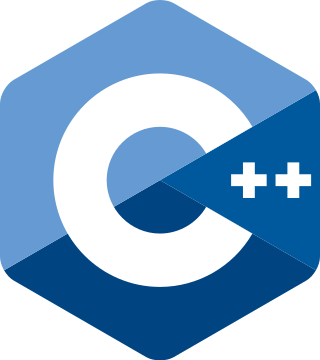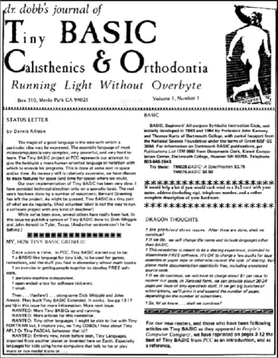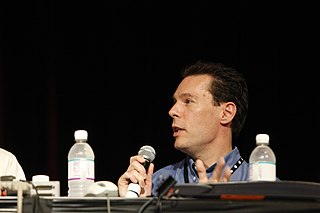
C++ is a high-level, general-purpose programming language created by Danish computer scientist Bjarne Stroustrup. First released in 1985 as an extension of the C programming language, it has since expanded significantly over time; as of 1997, C++ has object-oriented, generic, and functional features, in addition to facilities for low-level memory manipulation for systems like microcomputers or to make operating systems like Linux or Windows. It is usually implemented as a compiled language, and many vendors provide C++ compilers, including the Free Software Foundation, LLVM, Microsoft, Intel, Embarcadero, Oracle, and IBM.

Tudor Andrei Cristian Alexandrescu is a Romanian-American C++ and D language programmer and author. He is particularly known for his pioneering work on policy-based design implemented via template metaprogramming. These ideas are articulated in his book Modern C++ Design and were first implemented in his programming library, Loki. He also implemented the "move constructors" concept in his MOJO library. He contributed to the C/C++ Users Journal under the byline "Generic<Programming>".
The Standard Template Library (STL) is a software library originally designed by Alexander Stepanov for the C++ programming language that influenced many parts of the C++ Standard Library. It provides four components called algorithms, containers, functions, and iterators.
In software engineering, a design pattern describes a relatively small, well-defined aspect of a computer program in terms of how to write the code.

Dr. Dobb's Journal was a monthly magazine published in the United States by UBM Technology Group, part of UBM. It covered topics aimed at computer programmers. When launched in 1976, DDJ was the first regular periodical focused on microcomputer software, rather than hardware. In its last years of publication, it was distributed as a PDF monthly, although the principal delivery of Dr. Dobb's content was through the magazine's website. Publication ceased at the end of 2014, with the archived website continuing to be available online.

Walter G. Bright is an American computer programmer who created the D programming language, the Zortech C++ compiler, and the Empire computer game.

Herb Sutter is a prominent C++ expert. He is also an author of several books on C++ and was a columnist for Dr. Dobb's Journal.

Dave Thomas is a computer programmer, author and editor. He has written about Ruby and together with Andy Hunt, he co-authored The Pragmatic Programmer and runs The Pragmatic Bookshelf publishing company. Thomas moved to the United States from England in 1994 and lives north of Dallas, Texas.
Elliotte Rusty Harold is an American computer scientist, lecturer and author of several books on Java and XML and the creator of XOM, an open source Java class library for processing XML data.
Herbert Schildt is an American computing author, programmer and musician. He has written books about various programming languages. He was also a founding member of the progressive rock band Starcastle.
Andrew Richard Koenig is a former AT&T and Bell Labs researcher and programmer. He is the author of C Traps and Pitfalls and co-author of Accelerated C++ and Ruminations on C++, and his name is associated with argument-dependent name lookup, also known as "Koenig lookup", though he is not its inventor. He served as the Project Editor of the ISO/ANSI standards committee for C++, and has authored over 150 papers on C++.
The rule of three and rule of five are rules of thumb in C++ for the building of exception-safe code and for formalizing rules on resource management. The rules prescribe how the default members of a class should be used to achieve these goals systematically.

Martin Odersky is a German computer scientist and professor of programming methods at École Polytechnique Fédérale de Lausanne (EPFL) in Switzerland. He specializes in code analysis and programming languages. He spearheaded the design of Scala and Generic Java.
Scott W. Ambler is a Canadian software engineer, consultant and author. He is an author of books about the Disciplined Agile Delivery toolkit, the Unified process, Agile software development, the Unified Modeling Language, and Capability Maturity Model (CMM) development.
ACCU, previously known as the Association of C and C++ Users, is a non-profit user group of people interested in software development, dedicated to raising the standard of computer programming. The ACCU publishes two journals and organizes an annual conference.
The erase–remove idiom is a common C++ technique to eliminate elements that fulfill a certain criterion from a C++ Standard Library container.
In C++ computer programming, allocators are a component of the C++ Standard Library. The standard library provides several data structures, such as list and set, commonly referred to as containers. A common trait among these containers is their ability to change size during the execution of the program. To achieve this, some form of dynamic memory allocation is usually required. Allocators handle all the requests for allocation and deallocation of memory for a given container. The C++ Standard Library provides general-purpose allocators that are used by default, however, custom allocators may also be supplied by the programmer.
In C++ computer programming, copy elision refers to a compiler optimization technique that eliminates unnecessary copying of objects.
The Dr. Dobb's Excellence in Programming Award was an annual prize given to individuals who, in the opinion of the editors of Dr. Dobb's Journal, "made significant contributions to the advancement of software development." The Excellence in Programming Award includes a $1,000 prize that was donated in the award winner's name to a charity of the winner's choice. The award was launched in 1995 in the print edition of Dr. Dobb's Journal and was given each year until 2009. In his March 1995 article introducing the awards, then editor-in-chief Jonathan Erickson wrote that the award was intended to recognize "achievement and excellence in the field of computer programming." Erickson explained that the winners were "selected by a special editorial committee" of the magazine. Because Dr. Dobb's serves an audience of software developers, the Excellence in Programming Award is specifically intended to recognize resources for programmers: languages, code libraries, tutorial books, and so on. Developers of shrinkwrap software intended for retail sale, custom software for corporate use, embedded software, or general-purpose applications were not considered for the award.
The following outline is provided as an overview of and topical guide to C++:







